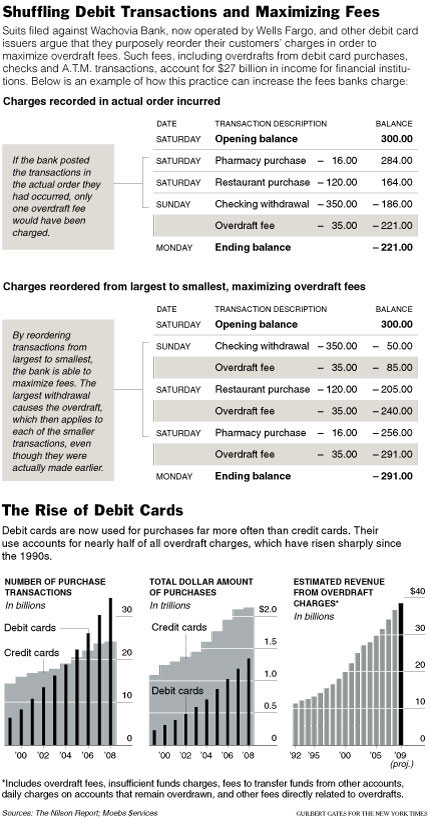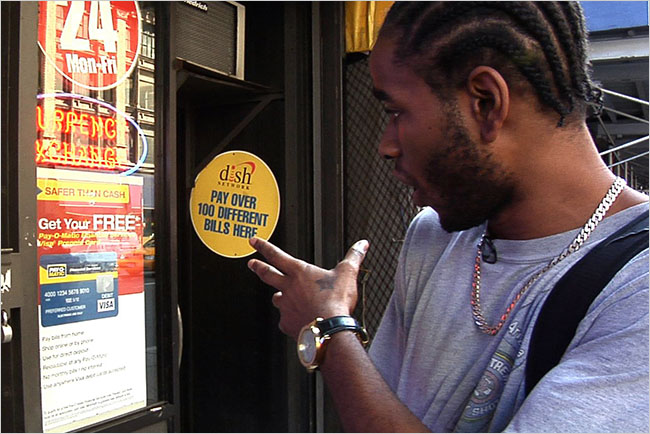| Want to send this page or a link to a friend? Click on mail at the top of this window. |
More Special Reports |
| Posted September 6, 2009 |
| |
|
Prepaid, but Not Prepared for Debit Card Fees |
||||
|
|
||||
|
|
||||
|
THE NEW YORK TIMES |
||||
|
|
By ANDREW MARTIN |
 |
|
|
THE NEW YORK TIMES |
|
|
|
| Little Regulatory Scrutiny |
 |
|
BRENT MCDONALD/THE NEW YORK TIMES |
| Tyrell Blocker of Brooklyn said that fees started to accumulate on his card as soon as the cash from his paycheck landed on it. he complained to Pay-O-Matic and only then was provided a detailed list of card fees. |
| Fees Are Declining |
| Wehaitians.com, the scholarly journal of democracy and human rights |
| More from wehaitians.com |